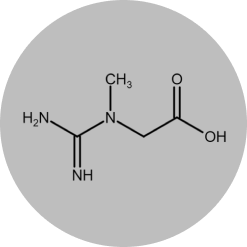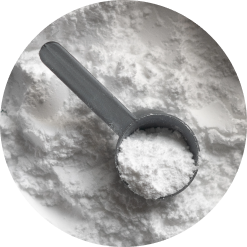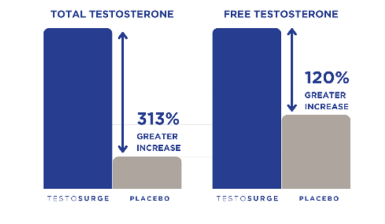OVERVIEW
VARIANTS
OVERVIEW
VARIANTS
HEALTH BENEFITS
Benefits of bioavailable creatine
USP
USP
SCIENCE
Scenario
Scenario
- According to research, around 30% of overweight men have Testosterone Deficiency.
- 38% of men above 40 have testosterone levels below 300 ng/dl.
- Above the 80-year threshold, more than 50% of men have testosterone levels below 300 ng/dl.
- As far as diabetes patients go, up to 24% of men have low testosterone levels.
- Low T-levels are harmful for all aspects, including physical, mental, and social
Reference:
Foundation
Foundation

A broad spectrum of systematic reviews and scientific data demonstrated that fenugreek and its extracts improve glycemic and lipid profiles. Fenugreek is known to have antioxidant, anti-carcinogenic, gastro protective, anti-inflammatory, antimicrobial, immunological, anti-obesity, and hepatoprotective effects, and are beneficial to women’s health. Further, previous studies reported that fenugreek improved cognitive functions and Parkinson’s symptoms and showed anti anxiety, antidepressant, and neuroprotective properties. A recent study has reported the beneficial effects of fenugreek and its extract on hormonal-related statuses, such as galactagogue in lactating women and male impotence.
The presence of fenugreek seeds in various traditional medicinal systems is due to their composition of diverse phytochemicals, including Glycosides.
Potential benefits of fenugreek glycosides in testosterone production include: Increased Testosterone Levels:
- Fenugreek supplementation may lead to an increase in testosterone levels, which could have positive effects on muscle mass, strength, and overall vitality.
- Enhanced Libido: Fenugreek has been traditionally used as an aphrodisiac, and its potential influence on testosterone levels may contribute to improvements in libido and sexual health.
- Improved Exercise Performance: Higher testosterone levels may be associated with increased exercise performance and muscle strength, making fenugreek an area of interest for athletes and those involved in physical fitness.
- Spermatogenesis Support: Testosterone plays a crucial role in spermatogenesis (sperm production), and fenugreek’s potential impact on testosterone levels may have implications for male reproductive health.
Mechanism of action
Mechanism of Action
Testosurge® is standardized to include a specific combination of steroidal and flavonoid glycosides. The steroidal glycosides in Testosurge® enhance the effectiveness of testosterone by competitively binding with SHBG. When testosterone is released into the bloodstream approximately 60-70% of it binds to SHBG. The steroidal glycosides from Testosurge® binds to SHBG and make testosterone free and bioavailable.
On the other hand, the flavonoid glycosides in Testosurge® play a role in increasing testosterone production. They achieve this by enhancing the expression of the steroidogenic acute regulatory (StAR) protein in Leydig cells. Testosterone is produced within the mitochondria of Leydig cells through steroidogenesis, where the StAR protein facilitates the entry of cholesterol into the mitochondrion.
Testosurge® has demonstrated inhibitory activity against5-alpha reductase and aromatase in cell line studies. 5-alpha reductase is an enzyme responsible for converting testosterone into DHT, while aromatase converts testosterone into Estrogen. This inhibition activity suggests that Testosurge® may help regulate the levels of these hormones in the body.
Additionally, Testosurge® can inhibit PDE5 enzyme which canresult in improved vasodilation and penile blood flow.
Efficacy
Efficacy
Human Clinical Study 1: Effects of Testosurge® supplementation on strength, body composition and hormonal profiles during an 8-week resistance training program.
Human Clinical Study 2: Effects of Single dose Testosurge® on serum testosterone levels of healthy sedentary male subjects
Scenario
Scenario
- Creatine is a chemical found naturally in the body. It’s also found in red meat and seafood. It is often used to improve exercise performance and muscle mass.
- Creatine is involved in making energy for muscles. About 95% of it is found in skeletal muscle. Most sports supplements in the US contain creatine. People who have lower creatine levels when they start taking creatine seem to get more benefit than people who start with higher levels.
- Despite the ability of carbohydrate consumption to increase the levels of creatine absorption, the chronic ingestion of such high levels of simple carbohydrates delivers a very high amount of calories and may have detrimental effects such as hyperglycaemia as well as negative effects on body composition.
Reference:
FOUNDATION
FOUNDATION
Originating in the Mediterranean, southern Europe, and western Asia, fenugreek is a highly esteemed herb in traditional systems for its diverse benefits. The seeds, renowned for their multifaceted advantages, not only enhance culinary experiences with their distinctive flavour but also play a crucial role in promoting health.
With a rich history in traditional medicinal practices like Ayurveda and traditional Chinese medicine, fenugreek is valued for supporting digestion, maintaining heart health, and regulating blood sugar levels. Its enduring reputation across cultures highlights its versatility and health-promoting properties.
The synergistic effect of Total amino acid containing 4 Hydroxy isoleucine & Trigonelline has a well-researched science which shows the insulinotropic properties. The insulinotropic properties mediates the release of insulin which makes creatine more bioavailable.
Mechanism
of action
Mechanism of Action
Creatine is a nitrogenous compound produced by the body in limited capacity to aid in cellular anaerobic activity to generate ATP. To overcome the limited production of creatine in the body and aid the ergogenic needs to enhance ATP production required for boosting exercise performance, exogenous creatine in the form of creatine Monohydrate has become a common supplement.
Though a common supplement, a few drawbacks of creatine supplement are:
- Less bioavailability of creatine ingested.
- Instability of creatine under acidic condition of stomach.
- Ingesting large quantity of carbohydrate (glucose) for increasing the Insulin secretion for uptake of creatine.
Biocreat is standardized to Amino Acids and Trigonelline from fenugreek seeds. Extract contains a unique blend of 20% Total Amino Acids and 15% Trigonelline to give a complete benefit of both the molecules to increase the Bioavailability of creatine without sugar loading and maximum conversion of Ingested Creatine to Phosphorylated Creatine.
The Trigonelline and Amino acid containing 4-Hydroxy Isoleucine(4-HI), a unique blend clinically proven to increase the Bioavailability of Creatine without the most preferred Sugar loading method through the following mechanism of action:
4-Hydroxy Isoleucine shows the increased uptake of Creatine in muscle cells making it more bioavailable by increasing the conversion of creatine to P-Creatine. This increased uptake happens through the 4-HI mediated insulinotropic activity.
The increased insulinotropic activity leads to the following actions:
- Stimulation of blood flow induced by insulin increases the uptake of creatine in skeletal muscle cells.
- Insulin induced translocation of Na+ K+ ATPase improves the Creatine accumulation in skeletal muscle cells.
Efficacy
Efficacy
Human Clinical Study 1: Effect of combined Creatine plus BIOCREAT VS Creatine + carbohydrate supplementation on resistance training adaptations

Result:
- Creatine plus BIOCREAT supplementation shows significant impact on body composition and strength.
- Creatine with BIOCREAT supplementation may be an effective option for creatine bioavailability while eliminating the need for excessive amount of high glycemic carbohydrates.


















